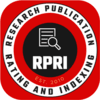Land Revenue System in The State of Mysore: A Review
Keywords:
Land Revenue, Akarbund, Khetwar Patrika, Patta, Jamabandhi, SaljadeAbstract
To meet the administrative and other expenses, state has to levy taxes. Land revenue was the most notable source of state income. The state largely relied on land revenue for administrative, military and other important expenditure. Right from the time period of Manu, the land revenue has been a major source of income of the state. After the Reorganization the uniform Mysore Land Revenue Act and Rules were brought into force on 1st April 1964. The Survey and Settlement Department prepares a Register showing the area and assessment of each survey number. It also prepares another register known as akarbund. On receipt of this, Village Accountants are required to prepare the khetwar patrika or index of land. It is a combined document of tights, tenancy and crops. The original Record of Tenancy and Crops which is maintained in the Taluk Offices is rewritten once in five years. The Katha Register, another important document which is opened on the 1st of July every year is the basic record containing the entries with reference to the RTC, Khirdhi (day book) and receipt book. Patta or a ryot’s receipt book is kept with the ryot after getting the entries made regarding payment of land revenue and other dues. It is a record of land held by him. The Village Accountant should make entries in the Patta books of all registered transactions. The Sheristedar verifies the entries made in the Pattas. Tahsildars and Assistant Commissioner examine the Pattas by comparison with the connected ledgers. After each revenue year, annual accounts (Saljade) are prepared. The object of the system of Jamabandhi was to review the Revenue administration of each village. The main objective of the paper is to understand the history and evolution of land revenue accounts system in Mysore state. Data for the present study has been collected from secondary sources, including Gazetteers, books and internet sources.
References
Kamath, U.S. (1988). Mysore District Gazetteer. Bangalore.
Sadashiva, K. (2011). Modern Mysore: New Approaches on Polity, Society and Economy. Gupta Offset Printers. Mysore.
Kamath, U. S. (1983). Karnataka State Gazetteer: Part-II. Bangalore.
Mohanthy M. (2010). India Social Development Report. Oxford University Press. New Delhi.
Dash B. C. & Mukherji. (2008). India Since Independence. Penguin Books India Limited. New Delhi.
Misra S. K. & Puri, V. K. (2010). Indian Economy. Himalaya Publishing House. Mumbai.
Downloads
Published
How to Cite
Issue
Section
License
Copyright (c) 2024 AKSHARASURYA

This work is licensed under a Creative Commons Attribution 4.0 International License.








